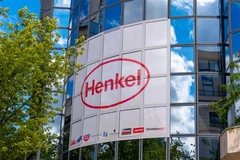Coveris announces multi-million investment to expand food-to-go packaging capacity

Coveris has announced a £5 million (US$6.7 million) investment in its packaging facility at St Neots, UK, to boost the production of recyclable food-to-go packaging. The project is expected to triple the facility’s operational footprint, and aims to become Europe’s largest fiber-based food-to-go manufacturing site.
The investment will allow Coveris to expand its production space and meet growing market demands for food-to-go packaging. The site will feature robotics, lean design, smarter workflow systems, raw material optimization and a new flexo press. With a focus on sustainability, the upgrades will also reduce waste and optimize raw material usage.
The expansion will take place within the existing site areas and will enhance the facility’s production capabilities through “high-speed,” waste-reducing designs. Additionally, the investment will futureproof the site for further growth.

Jo Ormrod, president for Coveris’ Paper Business Unit says: “We’re really excited to unveil our expansion plans for the St Neots site and demonstrate our ongoing commitment to our customers as a leader in food-to-go.”
“Having been purpose-built to not only increase capacity and availability of our award-winning products, we will now also be able to offer these with a reduced environmental footprint for both Coveris and our customers.”
Boosting for sustainability
Work on the site is expected to begin this month, with completion projected for Q1 2025. The phased installation will be supported by Coveris’ adjacent facilities in St Neots, ensuring ongoing production during the transformation.
As Coveris’ largest investment in its Paper business unit to date, the project will deliver substantial capacity increases, enabling the company to manufacture approximately 700 million recyclable Freshlife engineered food-to-go packs annually. Coveris aims to streamline production through entirely automated inspection systems and new air systems that will lower energy consumption.
Additionally, the facility will introduce innovative waste segregation systems, recovering up to 25% of waste as virgin boards, which will be reused back into cartonboard production as part of Coveris’ ReCover recycling operations.
The ReCover segment was introduced to maximize packaging benefits while minimizing waste, addressing challenges in securing recycled feedstock for innovative products. In a previous interview, the company shared with Packaging Insights that this initiative emphasizes waste sourcing, processing and recycling within the industry.
Coveris is also active in waste recycling through its partnership with waste management and recycling specialist Interzero to supply feedstock for its recycling technology, supporting a circular plastics economy.












